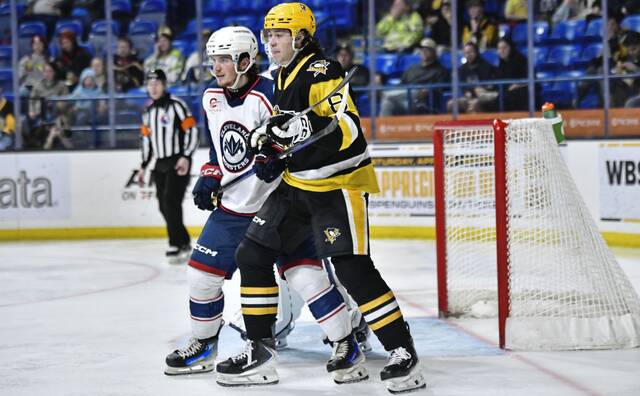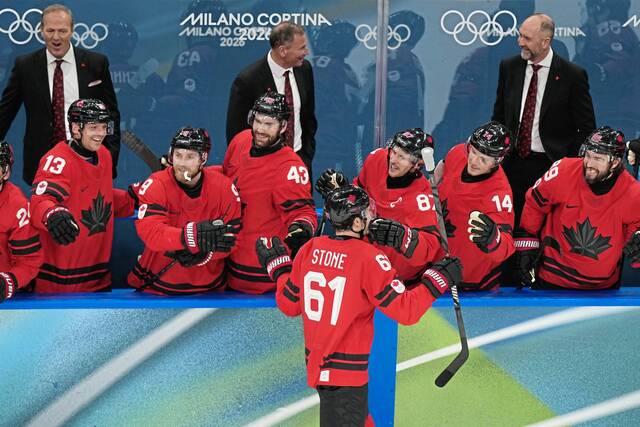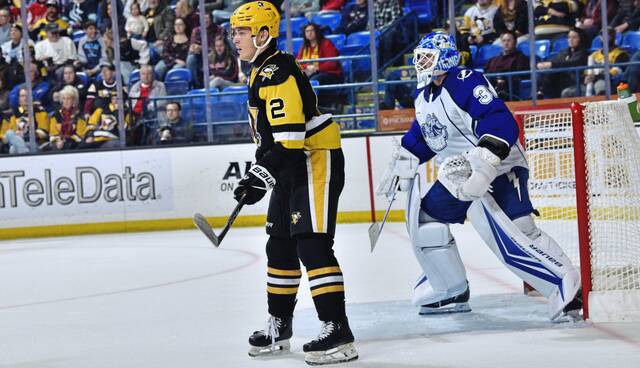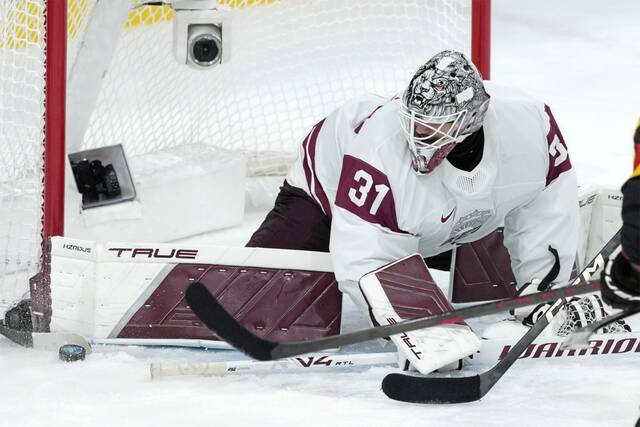As the Pittsburgh Penguins tried to grapple with a quick playoff exit this season, Kris Letang and Mike Sullivan became entrenched on opposite sides of a divide that seemed new, dramatic and important.
Sullivan stood at a podium after his team was swept by the New York Islanders and declared high-risk teams can’t win in the playoffs. Letang stood in front of his locker and insisted he wouldn’t neuter his game in an effort to stamp out mistakes.
How will this chasm ever be bridged?
The answer: Like it always has.
The push and pull between coaches insisting on steady, responsible play on the blue line and offensive defensemen preferring a more aggressive approach is as old as Ron Stackhouse in Pittsburgh and even older elsewhere.
In most cases, compromises are made, and the disagreement is worked out. There’s a good chance that could happen with Letang and the Penguins.
Letang’s borderline-petulant stance that he won’t change his game was well reported on the day the Penguins cleaned out their lockers, but in a less headline-grabbing remark, the 31-year-old defenseman also said he’s committed to offseason improvement.
“I’m just going to go back and try to improve my game by training and getting better in certain areas,” he said. “That’s how I approach every summer, trying to fix little things and trying to improve them.”
In some cases, of course, there can be no meeting of the minds. Teams decide the bad now outweighs the good and move on. There’s a more-than-zero chance that’s the way the Letang situation plays out this summer.
As Penguins management mulls that possibility, there is an interesting set of pros and cons that must be considered.
Criticism of Letang is valid.
Did his turnover cost the Penguins Game 1 against the Islanders in overtime? Yes. Did his ineffective handling of a loose-puck situation near the offensive blue line give the Islanders an important goal in Game 4? Absolutely.
But that criticism is also very anecdotal.
A data-driven look at the larger sample size of the entire season paints a fuller picture of the impact he makes.
When it comes to preventing goals, Letang’s presence didn’t make much of a difference for the Penguins this season. The team’s goals-against rate per 60 minutes at five on five was practically identical, right around 2.25, whether he was on the ice or not.
The team’s goals-for rate was a different story. When Letang was on the ice, it was 3.55. When he wasn’t, it plummeted to 2.29. It’s no exaggeration to suggest that when it comes to creating offense, Letang is the straw that stirs the drink for the Penguins.
For the first five months of this season, Letang was showing that routinely as he wrote a fairly remarkable comeback story.
In April of 2017, he had serious neck surgery. The recovery was longer and more arduous than he expected, and a subpar season followed. This year, Letang put those memories behind him. He tied a career high with 16 goals, recorded 56 points and will appear on more than a few Norris Trophy ballots.
The story was ruined by two developments, though.
First, he suffered an upper-body injury when he was tackled to the ice by Philadelphia’s Shayne Gostisbehere during the Feb. 23 outdoor game and missed 15 of the last 20 games of the regular season.
“That was pretty bad timing for an injury,” Letang said. “I felt I was having a great year. But these things happen. You have to keep your head up and keep working and try to get better. Personally, I think it was a pretty down moment in my year when I got that injury.”
Second, there was the ugly, abrupt ending provided by the Islanders that kick-started all this risk-management discussion in the first place.
“I think you learn from everything. You win or you lose, there’s always something to be learned,” Letang said. “It was an up-and-down season. It was not a smooth ride. But we’re pretty disappointed with the end result.”








